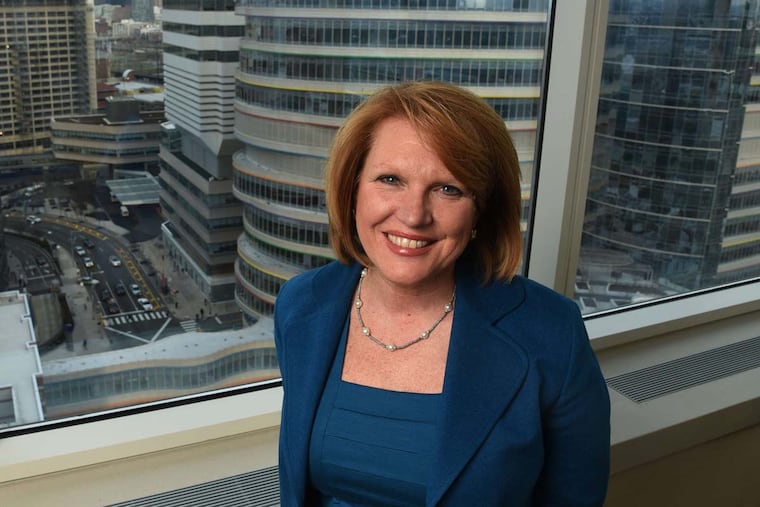Madeline Bell reflects on nursing and Children's Hospital
The photo is adorable. Little Madeline, age 3, smiles happily next to her family's tinseled Christmas tree, hand plunged into her Christmas stocking, clearly pleased with the white nurse's cap perched on her head.

The photo is adorable. Little Madeline, age 3, smiles happily next to her family's tinseled Christmas tree, hand plunged into her Christmas stocking, clearly pleased with the white nurse's cap perched on her head.
Now Madeline Bell, 54, with a nursing degree, heads one of the world's largest health enterprises, the Children's Hospital of Philadelphia, where she presides over a $2.5 billion budget and 11,552 employees.
In July, Bell, after eight years as CHOP's chief operating officer, replaced longtime chief executive Steven Altschuler, a pediatrician and researcher.
Did your nurse's training prepare you for the CEO job?
When I was a nurse, I really learned the importance of empathy. As a senior leader, to have empathy for our patients and families and for the people on the front lines, and to really understand what they're going through and how they're seeing the bigger picture, is really important. I constantly am thinking about the experience of our patients and of our families. How do I best create an environment that supports the people on the front lines that are taking care of them every day?
Hospitals remain physician-dominated. Not being a doctor, did you meet any resistance?
Given the fact that I replaced somebody who was a physician researcher for 15 years, there were definitely people who were asking questions. Our board asked those questions of our medical leadership, who all said they supported me, regardless of the fact that I wasn't a physician.
The power shift happened suddenly, as I recall.
When I was chief operating officer - and this happens often with CHOP - I had a number of other children's hospitals contacting, expressing interest in me being their CEO. That got me thinking about maybe I can really see myself in that role. Our board had been talking about succession planning for several years. Our board didn't want to lose me. Our CEO had been in the role for 15 years and had said, 'I'm ready to leave when there's somebody who's ready to take my job.'
What do you think is the most exciting medical development since you've been at CHOP?
What we're doing in the areas of gene therapy. Some day we will find the cure for our childhood diseases by finding the defective gene and being able to replace it with a good gene. It's really exciting to think that we will be preventing childhood diseases vs. just treating them.
You recently began a blog, Heels of Success. Why?
I often get asked to mentor young women. I just don't have the bandwidth to do it. The blog is my way to give back.
What is a common mistake young women make as they try to advance?
Women think if they put their heads down and produce A-plus work, somebody's going to tap them on the shoulder and say, 'You produced A-plus work. I'm going to promote you.' That's not how that happens. You need to get out there. Network. Be intentional.
Comcast Corp. recently appointed you to its corporate board. Were you intentional about getting a seat on a corporate board?
If you have an aspiration, even it's sort of like pie in the sky, you can be intentional about creating a path for yourself by learning things. I did the Leader's Edge program called the Women on Board. When I met people who were on corporate boards, I asked them about how they got on that board, but was also really specific to say that [a seat on a corporate board] was a career goal for me.
Why did you want to be on a for-profit board and what will you gain from being on Comcast's board?
I've spent my entire life in nonprofits. I thought it would be good to have an opportunity to really learn how corporate America works. When you think about the future of health care, one of my areas of focus will be in digital health. So, information technology, communications, it's all really important for us. Being exposed to that in a communications and tech company will be helpful.
Interview questions and answers have been edited for space.
215-854-2769@JaneVonBergen